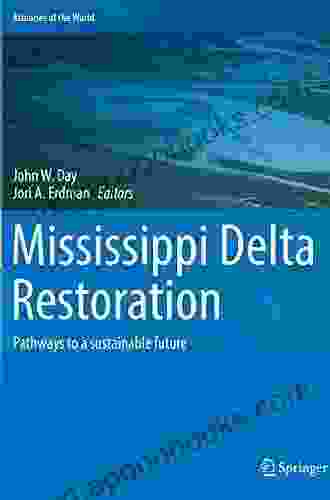A Captivating Exploration of the Vital and Vulnerable World of Estuaries

Embark on an extraordinary journey into the realm of estuaries, where the dynamic interplay of freshwater and saltwater ecosystems creates a haven for life. "Pathways to Sustainable Future Estuaries of the World" is an immersive and comprehensive guide that unravels the secrets of these captivating landscapes, offering invaluable insights and actionable solutions for their conservation.
4.3 out of 5
| Language | : | English |
| File size | : | 36581 KB |
| Text-to-Speech | : | Enabled |
| Screen Reader | : | Supported |
| Enhanced typesetting | : | Enabled |
| Word Wise | : | Enabled |
| Print length | : | 647 pages |
| X-Ray for textbooks | : | Enabled |
| Paperback | : | 34 pages |
| Item Weight | : | 3.52 ounces |
| Dimensions | : | 6 x 0.09 x 9 inches |
Unveiling the Ecological Significance of Estuaries
Estuaries, where rivers meet the sea, are biodiversity hotspots teeming with an astonishing array of flora and fauna. As nursery grounds for numerous fish species and migratory birds, they play a crucial role in maintaining the health and stability of marine and terrestrial ecosystems alike.
From vast salt marshes to verdant mangrove forests, each estuary boasts its own unique character and ecological attributes. Yet, these precious ecosystems face growing threats from human activities, such as pollution, habitat loss, and climate change.
Delving into the Challenges Facing Estuaries
"Pathways to Sustainable Future Estuaries of the World" delves deeply into the challenges confronting estuaries, providing a comprehensive analysis of the major threats facing these vulnerable ecosystems.
Pollution from agricultural runoff, industrial discharges, and urban wastewater can severely impact water quality, harming aquatic life and disrupting vital ecological processes. Habitat loss due to coastal development, land reclamation, and deforestation further exacerbates the decline of estuary ecosystems.
Moreover, climate change poses significant threats to estuaries, with rising sea levels leading to saltwater intrusion and increased storm intensity. Changes in temperature and precipitation patterns can also alter the delicate balance of estuarine habitats.
Charting a Course for Sustainability
Despite the challenges, "Pathways to Sustainable Future Estuaries of the World" offers hope and guidance for the conservation and restoration of these vital ecosystems. The book presents a range of best practices and success stories from around the globe.
Implementing integrated coastal zone management plans, reducing pollution through wastewater treatment and agricultural practices, and restoring degraded habitats are among the key strategies advocated in the book. The role of community engagement and citizen science in monitoring and protecting estuaries is also highlighted.
Case Studies and Expert Perspectives
"Pathways to Sustainable Future Estuaries of the World" features in-depth case studies from diverse estuarine systems, showcasing successful conservation initiatives and innovative solutions.
Renowned scientists, conservationists, and policymakers provide their insights and perspectives throughout the book, offering valuable insights into the latest research, best practices, and policy frameworks for estuary management.
An Indispensable Resource for Conservationists, Policymakers, and Estuarine Enthusiasts
"Pathways to Sustainable Future Estuaries of the World" is an invaluable resource for a wide range of stakeholders, including conservationists, policymakers, researchers, and anyone passionate about protecting these remarkable ecosystems.
With its comprehensive overview of estuary ecology, analysis of threats, and presentation of actionable solutions, this book is an essential guide to ensuring the long-term health and sustainability of estuaries around the world.
Embark on this captivating journey into the world of estuaries, and discover the hidden treasures and challenges they hold. Together, we can chart a path towards a sustainable future for these vital and vulnerable ecosystems.


























































































